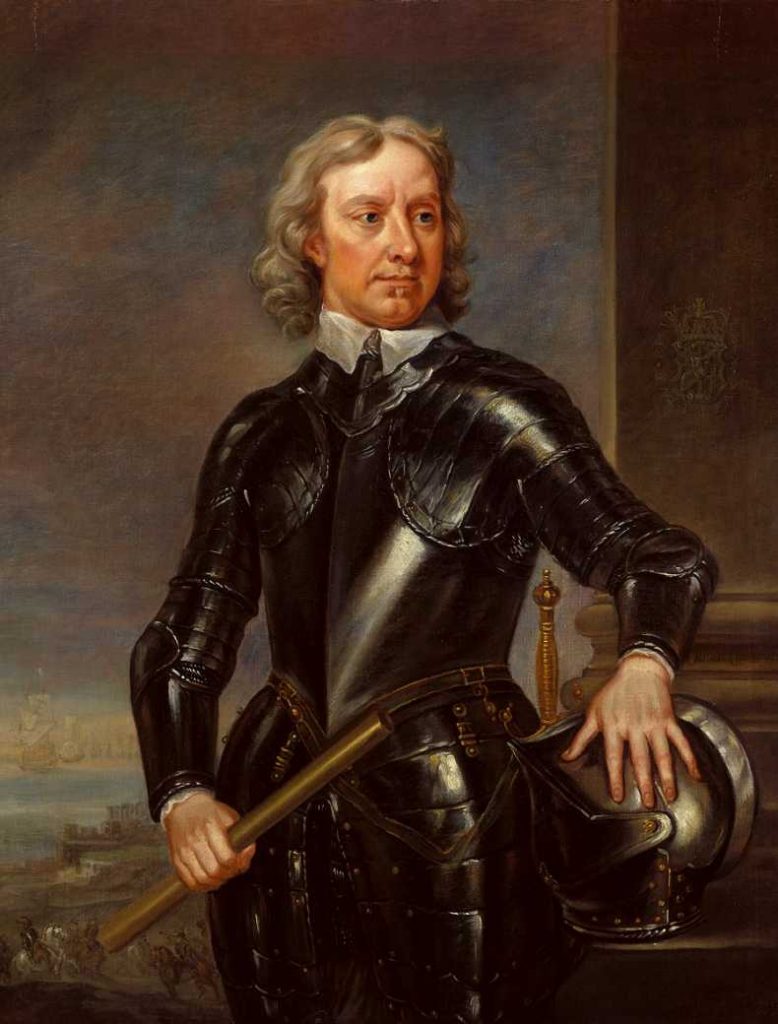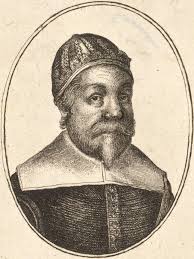Before he became a reverend and a doctor of philosophy, Obed Simon Johnson attended Carleton College in Northfield, Minnesota. About 1906 he wrote a rhetorical essay, “England’s Debt to Oliver Cromwell.” The poetic style and sweeping assumptions are confusing. Why did he write that way?
Like all liberal arts colleges at the time, Carleton taught its students Greek and Latin and rhetoric, also known as “the art of persuasion.” Obed used a number of rhetorical devices to appeal to the reader or listener. The essay really should be read aloud for maximum effect.
Obed starts out, “Good and evil are world powers…. Men have sworn allegiance to the one or the other, and have gladly suffered infamy and death in defense of their convictions.” His thesis is, “Throughout history, it is during the darkest hour of a nation’s political night, that the morning star of hope foretells the dawn of a new era – a time of justice and deliverance.”
He cites two examples of such historic justice. In ancient Egypt, “Moses, divinely appointed, came forth to deliver the Lord’s chosen people from bondage.” And in medieval Europe, “Charles Martel struck such a blow for Christianity, that Saracen supremacy was destroyed forever.” In other words, Charles Martel (grandfather of Charlemagne) defeated the Muslims (or Moors) in France and pushed them back into Spain. These men’s deeds foreshadow those of Oliver Cromwell.
Obed goes on to describe England as an oppressed country. He sets the mood: “A nation, groaning in the shackles of despotism and intolerance, was at the brink of national ruin. But at the very time when her destruction seemed inevitable, there arose a man, destined to shatter the fetters of tyranny, and to give his country, the ideals of a truly representative government.”

Why were the times so dire? Obed lists the grievances of the English people. Charles I. held to “a deep-seated conviction of the divine right of kings. He was treacherous, arrogant and unyielding….” His Star Chamber was a kangaroo court that “sentenced men to death for fanciful crimes….” And he dissolved Parliament for eleven years, forcing “the English people [to choose] between despotism and death.”
Describing the religious troubles in England, Obed leads us to a defining moment for Cromwell. As a youth, he witnessed the persecution of a “venerable, gray-haired man” who was “a model of patriotism and devotion.” The man was “cursed, cruelly scourged and finally branded with irons, as a heretic.” Who was this guy?
Maybe Obed expected his audience to know – because he doesn’t name him. A Google search for “Sower of Sedition” and “Cromwell” turns up Alexander Leighton, a Scottish preacher and Puritan who wrote a pamphlet criticizing the Church. Leighton was brought before the Star Chamber and charged with sedition. He was whipped and had his ears and nose disfigured and the letters “SS” (for “Sower of Sedition”) branded on his cheeks. In response to this torture, Cromwell’s “indignation knew no bounds.” He “vowed that, with God’s help, he would deliver his people from their oppressors.”

Obed introduces the ethos, or moral element of rhetoric, asking, “Whence came this man of firm resolve?” Cromwell inherited from his Puritan parents that “firmness of character which moulded the deeds of after-life.”
When King Charles “o’erstepped the boundaries of human endurance,” civil war loomed between the Royalists (“Cavaliers”) and the Parliamentarians (“Roundheads”). Cromwell was then relatively old at forty years of age. “Unskilled in the arts of war, but firm in his devotion to duty, this modern Cincinnatus girded himself for the coming fray.” “This modern Cincinnatus“ is an allusion to the legendary Roman who left his plow to lead his countrymen to victory over their enemy and then humbly returned to his farm. George Washington has often been compared to Cincinnatus.
Cromwell gathered around him untrained men of character who believed in the Lord as strongly as he did. He transformed them into an invincible army known as Ironsides. “See [them] at Marston Moor…. See them at Winceby…. See them at Naseby….” This repetition at the beginning of a phrase, or “anaphora,” sounds like Winston Churchill: “We shall fight them in the trenches. We shall fight them in the oceans. We shall fight them in the sky.”
After defeating the Royalists, Cromwell turned to Irish and Scottish insurgents and united the three countries together. [He was especially harsh on Ireland’s Roman Catholics.] “Despotism had been dethroned, but already the waves of anarchy threatened the English ship of state. Where was the man to guide it into the harbor of safety?”
Obed then uses an aphorism, “He is the true statesman, who gives to his people, not what they want, but what they need.” [A Google search didn’t locate the author.]
Cromwell ruled England for eight years. His reign “marks the period of England’s transition from the gloom of Medievalism to the glory of the Modern Ages. Then, for the first time in the nation’s history, morality and worth became the qualifications for holding public office. The founding of schools and colleges gave a new impetus to learning. Though crude and incomplete, Cromwell’s doctrine of religious toleration, foreshadowed the age of positive freedom of conscience.” This may be overstated, but Obed certainly makes a strong case for Cromwell’s accomplishments.
Obed continues: “In his historic Commonwealth, he laid the firm foundations of a government “of the people, by the people, and for the people.” Who knew that Abraham Lincoln was using “epiphora,” or repetition at the end of a phrase, in the Gettysburg Address?
“The cares of state and the burdens of public service had broken his strength. So Cromwell, the soldier, the stateman, the reformer, passed to his reward…. True worth and character may for a time be obscured, but in the end, it will shine forth in its true light and splendor. England will yet recognize her debt of gratitude to the Great Protector. The English race will yet acknowledge, that whatever of national integrity and religious toleration it enjoys, it owes, in generous measures, to that stern workman of the Almighty, Oliver Cromwell.”
Obed Johnson won a prize for his rhetorical essay, though what the prize was is unknown. The oration can read as a defense of the white, Anglo-Saxon Protestant way of life in America. Obed was in for an eye-opening experience when he traveled to China as a missionary a few years later.
JLCoss
